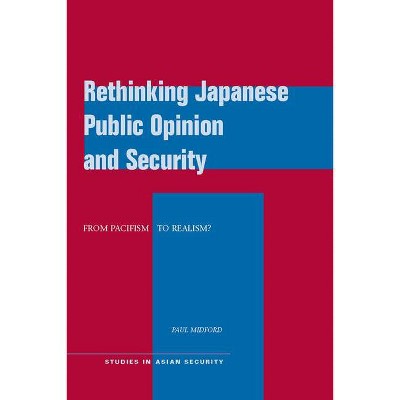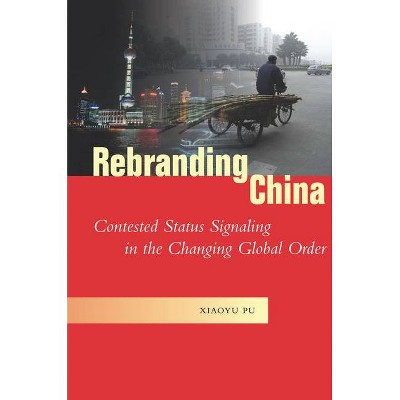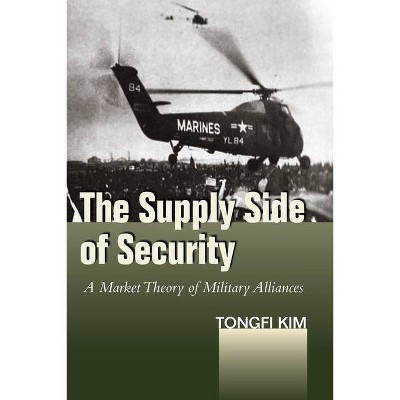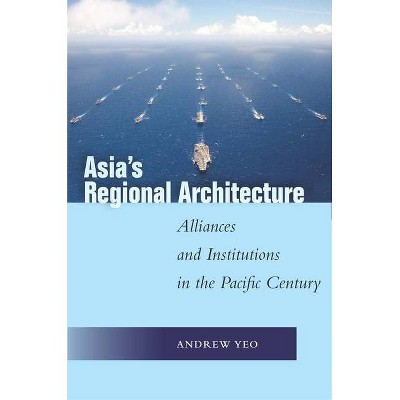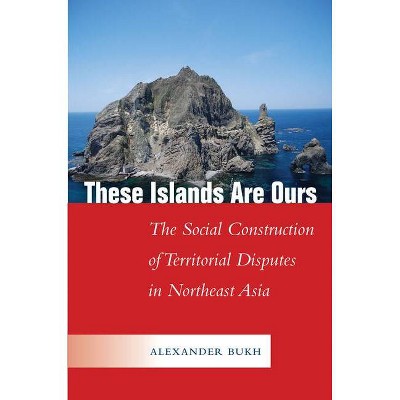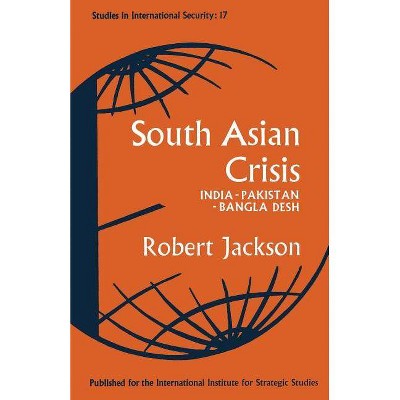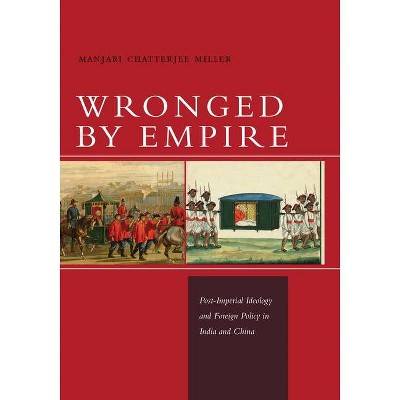Overcoming Isolationism - (Studies in Asian Security) by Paul Midford (Hardcover)
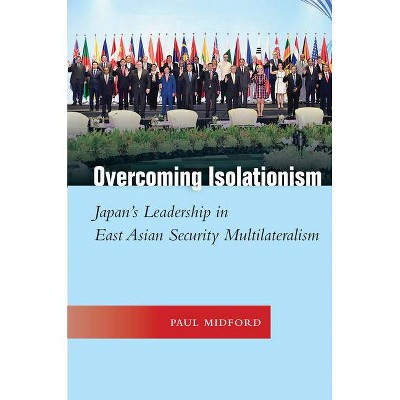
Similar Products
Products of same category from the store
AllProduct info
<p/><br></br><p><b> About the Book </b></p></br></br>"As the Cold War wound down, Japan suddenly reversed years of steadfast opposition to security alliances with its neighbors. Long isolated and opposed to multilateral agreements, Japan emerged as a regional leader by the early 1990s. The nation, often misperceived as wholly dependent on the United States and unresponsive to its neighbors, proposed East Asia's first regional multilateral security forum. Overcoming Isolationism explores what led to this surprising about-face and reveals the legacy of Japan's leadership"--<p/><br></br><p><b> Book Synopsis </b></p></br></br><p>This book asks why, in the wake of the Cold War, Japan suddenly reversed years of steadfast opposition to security cooperation with its neighbors. Long isolated and opposed to multilateral agreements, Japan proposed East Asia's first multilateral security forum in the early 1990s, emerging as a regional leader. <i>Overcoming Isolationism</i> explores what led to this surprising about-face and offers a corrective to the misperception that Japan's security strategy is reactive to US pressure and unresponsive to its neighbors. Paul Midford draws on newly released official documents and extensive interviews to reveal a quarter century of Japanese leadership in promoting regional security cooperation. He demonstrates that Japan has a much more nuanced relationship with its neighbors and has played a more significant leadership role in shaping East Asian security than has previously been recognized.</p><p/><br></br><p><b> Review Quotes </b></p></br></br><br>In <i>Overcoming Isolationism</i>, Paul Midford explains why Japan suddenly charged ahead of a more cautious US government to advocate regional security forums, and how Tokyo won unexpected support for its new vision from across the region--and eventually from the United States.--Michael J. Green "<i>Pacific Affairs</i>"<br><br>A tour de force of Japanese foreign policy studies, for both English- and Japanese-language scholarship. <i>Overcoming Isolationism</i> is cutting-edge thinking that raises the standard of scholarship for us all.--Tsuyoshi Kawasaki "Simon Fraser University"<br><br>By explaining how and why Japan pursued a proactive multilateral strategy in the Asia-Pacific region after the end of the Cold War, Paul Midford effectively corrects the country's reputation as a reactive state that defers to the United States regarding security policy. This book is essential for understanding this overlooked success story of Japanese foreign policy.--Mike Mochizuki "George Washington University"<br><br>In this magnum opus culminating almost 20 years of interview and archival research, Midford provides a compelling account of Japan's evolving regional security roles both in historical detail and with crisp policy relevance for a broader audience.--Dr. Andrew Oros "Washington College"<br><p/><br></br><p><b> About the Author </b></p></br></br><b>Paul Midford</b> is Professor in the Department of Sociology and Political Science and Director of the Japan Program at the Norwegian University of Science and Technology in Trondheim. His books include <i>Rethinking Japanese Public Opinion and Security: From Pacifism to Realism?</i> (Stanford, 2011).
Price History
Cheapest price in the interval: 75 on November 8, 2021
Most expensive price in the interval: 75 on December 20, 2021
Price Archive shows prices from various stores, lets you see history and find the cheapest. There is no actual sale on the website. For all support, inquiry and suggestion messagescommunication@pricearchive.us
